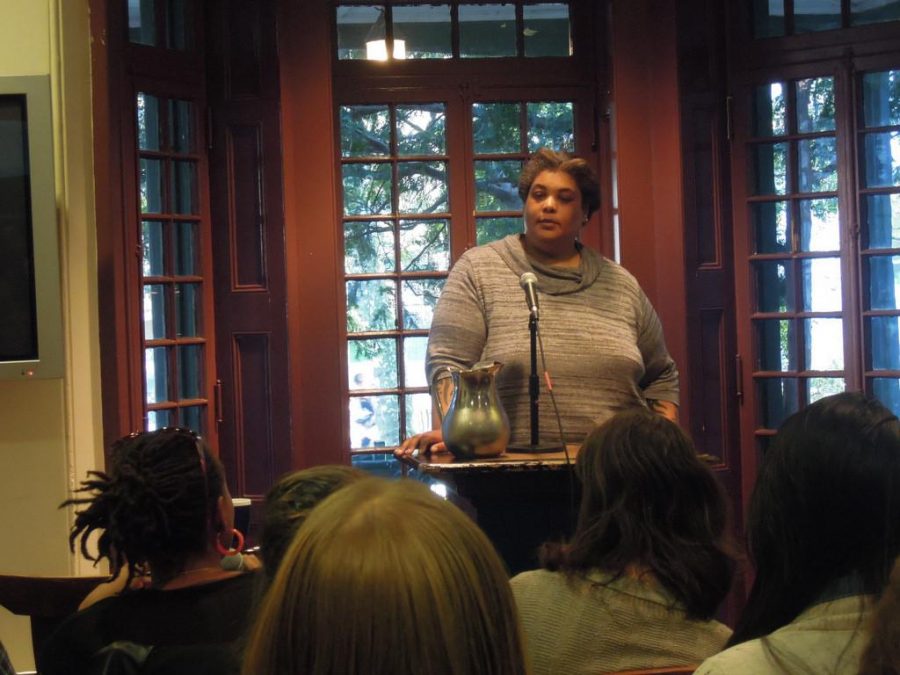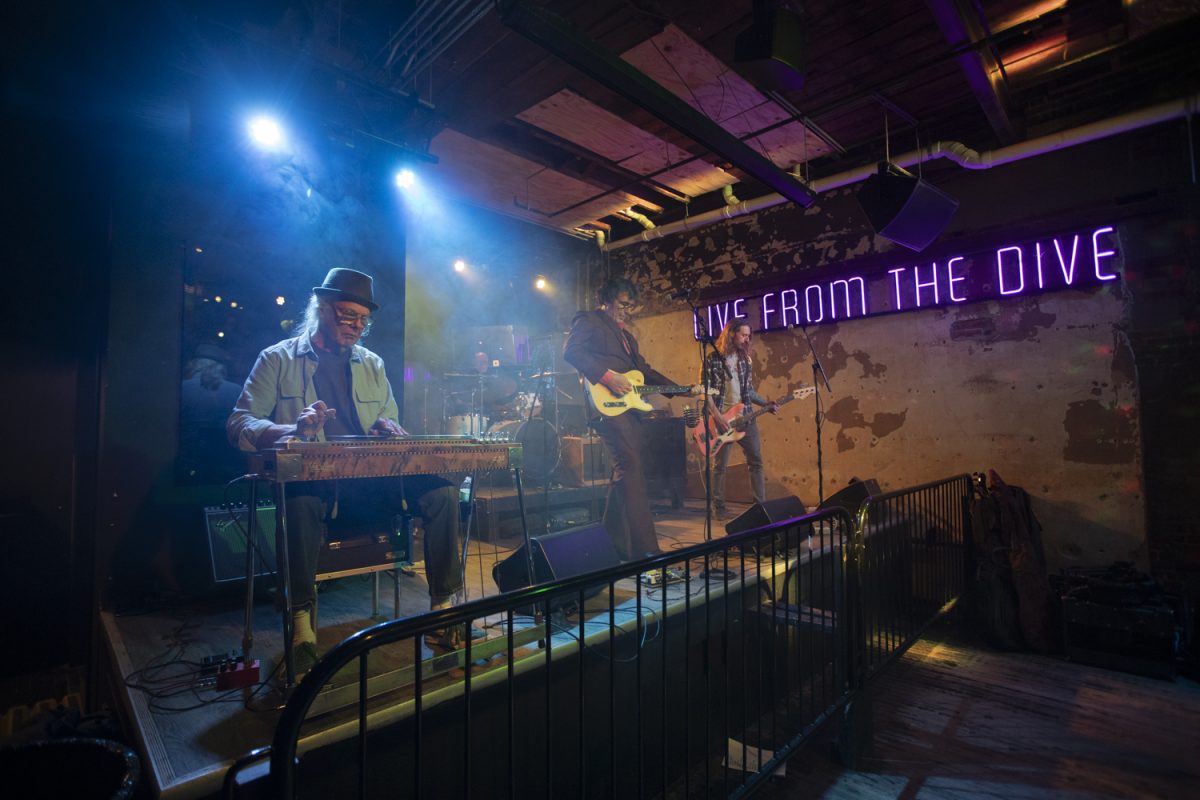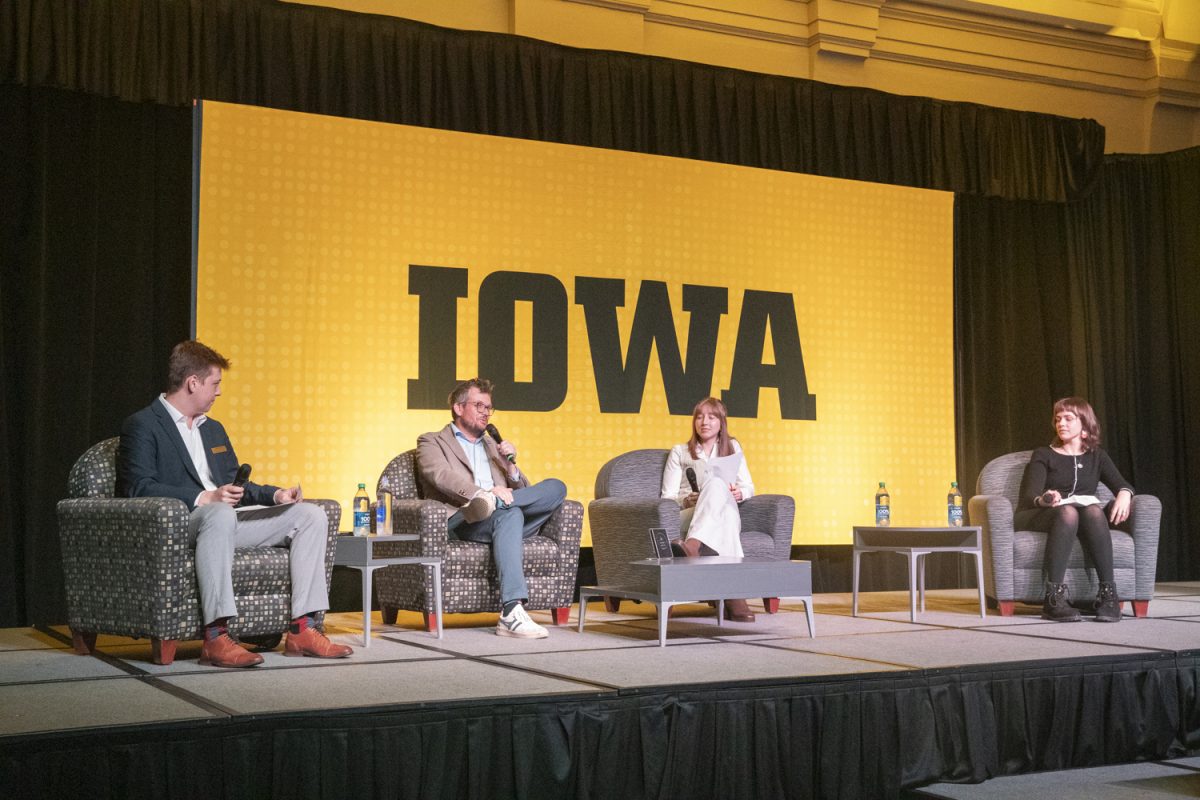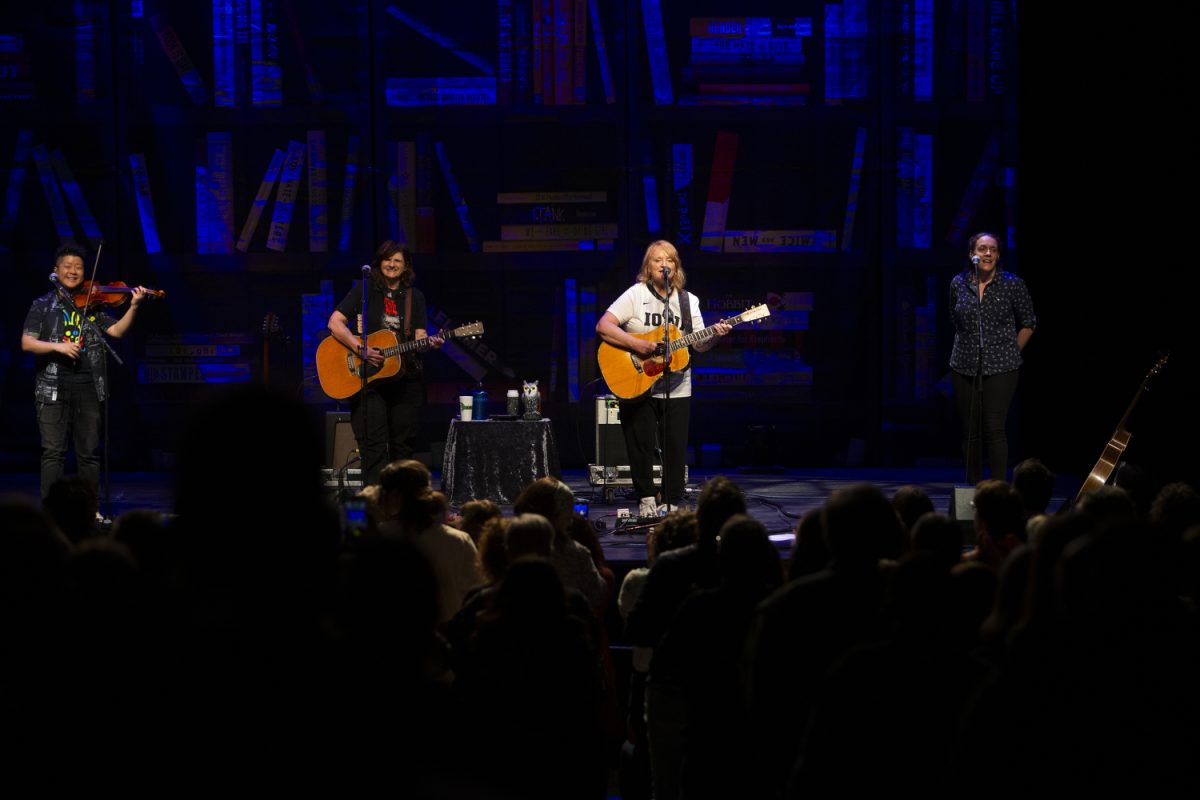An authorial voice with wit, an audience, and a message is something many strive for but few possess.One of those few is writer, editor, and Purdue University Professor Roxane Gay, whose social commentary on issues of feminism and race has earned her acclaim in the writing community and beyond. Gay’s work has received praise in many publications, including Time, and her 2014 essay collection Bad Feminist was a New York Times bestseller.
Marvel recently announced that Gay will cowrite the publication’s upcoming World of Wakanda comic-book series with the poet Yona Harvey and the writer Ta-Nehisi Coates, making Gay and Harvey the first black women to serve as lead writers on a Marvel title.
This week, as part of the Iowa City Book Festival, Gay will receive the Paul Engle Prize — an award that recognizes not only extraordinary writers but those who also thrive pushing social consciousness — at 7 p.m. today, at the Coralville Public Library, 1401 Fifth Ave. The prize consists of $10,000 and a one-of-a-kind work of art created by M.C. Ginsberg.
In honor of Gay being the prize’s fifth-annual recipient, the Daily Iowan interviewed the author via email to discuss her work and more. The interview has been edited for clarity.
Daily Iowan: How did you get started writing?
Roxane Gay: I’ve been writing since I was 4 years old. I just always loved telling stories, and the older I got, the more seriously I took my writing and now, here I am.
DI: You’re known to be very funny and having a great personality. What’s it like to carry that humor with you even when approaching heavy subjects in your writing?
Gay: Humor is, pardon the analogy, a spoonful of sugar to make the medicine of social justice go down. Humor isn’t something I try to force. I just … have a good sense of humor, and I try to bring that to my writing when it’s appropriate. Without humor, everything dulls.
DI: This award recognizes not only outstanding writers but those who make a difference in the world at large. How do you feel to be receiving such an award?
Gay: It’s an honor to be receiving this award because it shows me that my work is not going unrecognized. Writing is a solitary endeavor; the actual putting words on the page, and then you send your work into the world without any guarantee of success or finding an audience. To know that my work has reached people in meaningful ways is all I could ever want.
DI: You have emerged as one of the strongest voices of our time. How do you feel you’ve made your voice heard in a world when there’s so much noise?
Gay: I am strong in my convictions, but at my best, I also try to acknowledge, with respect, other viewpoints, including those that are different from mine. People just want to be seen, and heard, and we can do that while having strong opinions. It just takes a little effort.
DI: Many writers choose not to touch on [social issues], so what compels you to face them head-on?
Gay: I am a black woman living in a rather inhospitable world. I cannot look away from the indifference, if not hostility, so many people demonstrate toward black lives. I am a bisexual woman, so I cannot pretend that marriage equality has solved every problem the queer community faces. I am human, so even though I have a lot of privilege, I cannot ignore that there are far too many people who don’t.
DI: Bad Feminist is a more personal look into your own life. What was your experience writing more on yourself and the culture of feminism in today’s society?
Gay: I am a private person, so I don’t love putting myself out there, but I find, in some of my nonfiction writing, that it helps to draw from my life. I do so while maintaining strong boundaries and in ways that are, I hope, relevant to the points I am trying to make in a given essay.
DI: Can you tell me anything about the upcoming [World of Wakanda] project, and how it feels to become one of the first black women to write for Marvel?
Gay: It’s surreal to be the first black woman leading a Marvel title. It’s 2016, after all. World of Wakanda’s first run is a five-issue exploration of the Dora Milaje, the elite fighting guard who serves the Wakandan royal family.
DI: Could you speak a bit on your new memoir, Hunger? How did you approach this book, why did you want to write it?
Gay: Hunger is a memoir about my body, and being “morbidly obese” in a world that does not tolerate unruly bodies. I don’t know that I wanted to write this book, but I felt like I needed to because the thought of talking about bodies and trauma and weight terrifies me. You’ve got to write into your fear sometimes to get to the good stuff.
WORDS:
What: Roxane Gay Paul Engle Prize Reception
When: 7 p.m. Thursday
Where: Coralville Public Library, 1401 Fifth St.
Cost: Free







